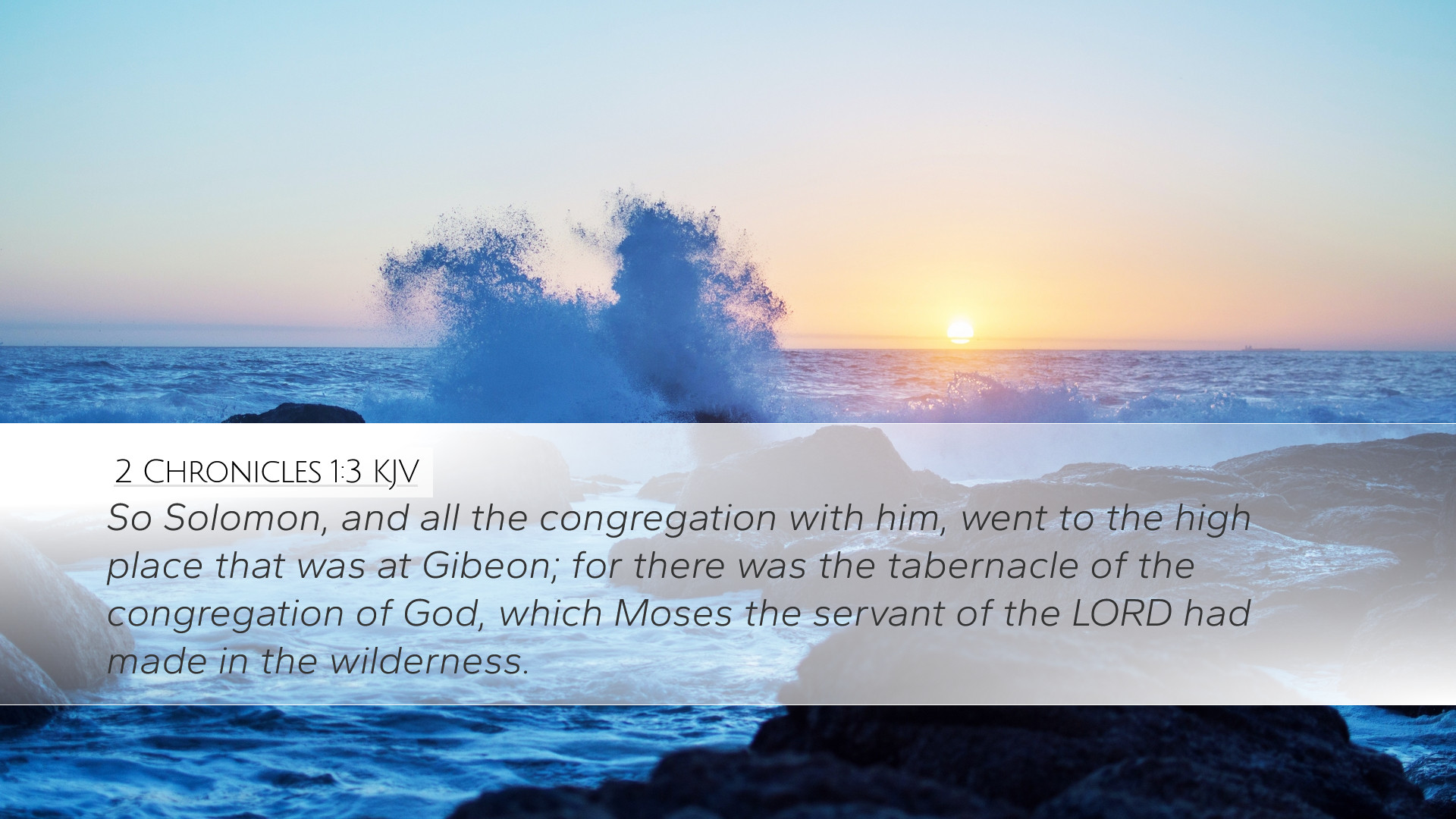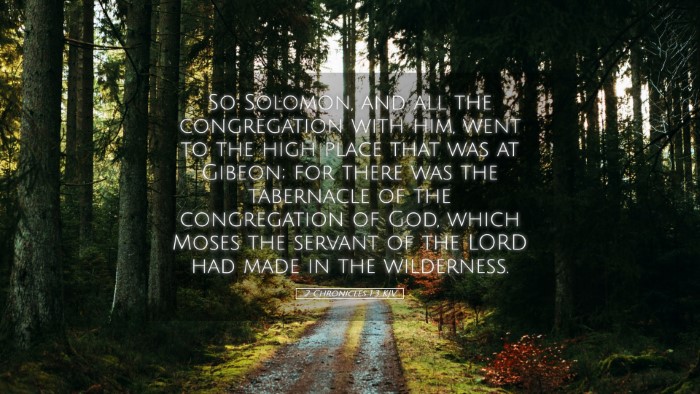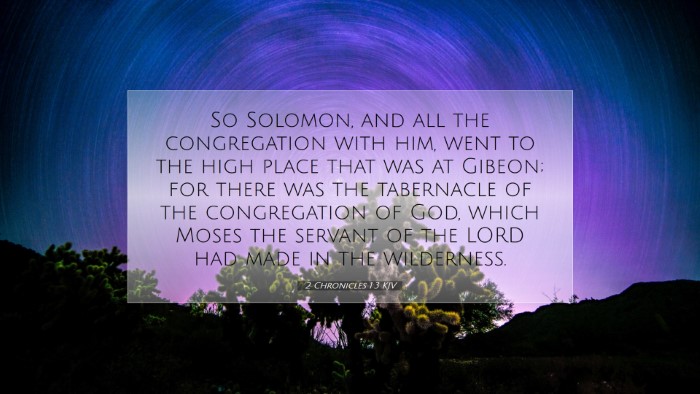Commentary on 2 Chronicles 1:3
Verse: 2 Chronicles 1:3 - "And Solomon, and all the congregation with him, went to the high place that was at Gibeon; for there was the tabernacle of the congregation of God, which Moses the servant of the LORD had made in the wilderness."
Introduction
The passage in question marks a significant moment in Solomon's reign, reflecting on how he began his rule with a desire for divine wisdom and guidance. It is imperative to understand the context and implications of this action, which can be drawn from the reflections of early biblical commentators. This commentary synthesizes insights from Matthew Henry, Albert Barnes, and Adam Clarke, providing a comprehensive analysis for pastors, theologians, and scholars.
Contextual Background
Before diving into the specifics of the verse, we must consider the historical context. Solomon, the son of David, had recently ascended to the throne of Israel. The high place at Gibeon was significant as the location of the tabernacle and the altar, serving as a key site for worship among the Israelites at the time.
Insights from Commentators
-
Matthew Henry's Commentary
Henry emphasizes the importance of public worship and the role it plays in the life of a leader. Solomon's choice to gather the congregation and proceed to Gibeon signifies not only his reverence for God but also his commitment to leading his people in spiritual matters. Henry notes that the location was vital since it maintained the legacy of Moses' leadership and catered to Israel's spiritual foundations.
-
Albert Barnes' Notes
Barnes highlights the historical significance of Gibeon as more than a mere location; it represents a continuity of God’s presence among His people. With the tabernacle made in the wilderness still in use, Barnes elucidates Solomon's recognition of the importance of adhering to established patterns of worship. His journey to Gibeon symbolizes the beginning of a reign rooted in faith and aligns with the divine purpose for Israel.
-
Adam Clarke's Commentary
Clarke expands on the nature of congregational worship, indicating that the gathering at Gibeon was an act of unity and collective acknowledgment of God's sovereignty. He stresses that the very act of worship signifies deep spiritual engagement and personal sacrificial offerings, highlighting that Solomon sought not individual gain but collective divine favor for all of Israel.
Theological Implications
The act of Solomon going to Gibeon with the congregation symbolizes a profound aspect of leadership which is humility and the recognition of God’s authority. Each commentator reflects on the nature of worship—which begins with communal assembly. This indicates several theological implications:
- Commitment to Worship: Solomon's journey to Gibeon signifies that true leadership begins with a heart turned towards God and public acknowledgment of His greatness.
- Assurance of God’s Presence: The tabernacle was a tangible symbol of God dwelling among His people, establishing the significance of communal worship in accessing divine wisdom and guidance.
- Role of the Congregation: The involvement of the congregation in Solomon's worship underscores the collective responsibility of the community in seeking God, reinforcing a model for future worship.
Application for Modern Leadership
The themes presented in this passage are highly relevant for modern-day leaders, both in the church and broader society. Here are some critical applications:
- Prioritizing Worship: Leaders are called to prioritize worship in all aspects of their leadership, acknowledging God’s sovereignty in decisions that affect their community.
- Encouraging Community Engagement: Modern leaders should foster environments that encourage community participation in worship, recognizing the collective power of seeking God together.
- Seeking Divine Guidance: Like Solomon, leaders should earnestly seek divine wisdom, understanding that true insight comes from a posture of humility before God.
Conclusion
In summary, 2 Chronicles 1:3 serves as a profound reminder of the importance of dedication to worship and collective seeking of God’s wisdom in leadership. It echoes the sentiments of early biblical scholars and remains relevant for contemporary believers and leaders. By synthesizing the insights of Matthew Henry, Albert Barnes, and Adam Clarke, we glean valuable lessons in humility, community, and divine reliance that resonate through ages.


